Subtotal: $53.00
Jennifer Sweeton – Neuroscience for Clinicians: Powerful Brain–Centric Interventions to Help Your Clients Overcome Anxiety, Trauma, Substance Abuse and Depression
Original price was: $219.99.$42.00Current price is: $42.00.
Instant Access Available: Jennifer Sweeton – Neuroscience for Clinicians: Powerful Brain–Centric Interventions to Help Your Clients Overcome Anxiety, Trauma, Substance Abuse and Depression
You will have immediate access to the digital downloads in your order email. You will also be able to access your downloads from your account dashboard.
Short Description:
he depressed brain pattern Effects of yoga and meditation on the nervous system Regulate the limbic system: the prefrontal cortex, cingulate gyrus and mindfulness Unify real and ideal Foster joyful relationship through mirror neurons Develop compassion and gratitude 6 Principles for Incorporating the Brain into your Therapy
- Description
- Reviews (8)
Description
Description
-

Jennifer Sweeton – Neuroscience for Clinicians: Powerful Brain–Centric Interventions to Help Your Clients Overcome Anxiety, Trauma, Substance Abuse and Depression
- Faculty:
- Jennifer Sweeton
- Duration:
- 5 Hours 41 Minutes
- Format:
- Audio and Video
- Copyright:
- Sep 08, 2016
- Tour through the Brain: What clinicians need to know from neurons to structures, to pathways, to networks
- See brain structures in 3-D
- How the brain processes top-down, bottom-up, and horizontal
- The interplay of mental health and key nervous system structures, functions, and pathways
- Work with implicit and explicit memories
- How key pathways inform clinical interventions:
- Pain Pathway
- Reward Pathway
- Fear-Stress Pathway
- Nervous System Networks and the Social Brain: We are wired for attunement
- Default Mode (DMN) and Task Mode Networks (TMN)
- Healing attachment
- Activate mirror neurons bottom-up
- Neuroplasticity and Neurogenesis: How the brain can change
- Three timeframes for change
- Neuroplasticity at the synapse
- How to foster neuroplasticity in clients
- Neuroplasticity in action: Exercise your brain!
- Practice Interventions for Healing: Bottom-up, top-down, and horizontal
- Sensory Awareness
- Meditation and Mindfulness
- Body Work
- Unconscious and the DMN
- The Mind-Body Link
- Integrate the Brain into Treatments
- Stress
- How stress alters the nervous system
- Calm the stress/fear pathway
- Develop alert/relaxed attention for better coping
- Trauma
- Foster confidence with yoga
- Malleability of memories and clinical implications for treating trauma
- Reconsolidate implicit memories
- Anxiety
- The anxious brain reaction
- Work top down/ bottom up/ horizontally
- Calm the limbic system bottom up with movement
- Soothe the insula through meditative sensory awareness
- Deconstruct sensations mindfully
- Substance Abuse
- Brain areas involved in addictions
- Rewire the reward pathway
- Detach from pleasure and pain
- Prefrontal connections and judgment
- Depression
- The depressed brain pattern
- Effects of yoga and meditation on the nervous system
- Regulate the limbic system: the prefrontal cortex, cingulate gyrus and mindfulness
- Unify real and ideal
- Foster joyful relationship through mirror neurons
- Develop compassion and gratitude
- Stress
- 6 Principles for Incorporating the Brain into your Therapy
Description
Neuroscience has given us incredible insights into the workings of the brain and its connection to our mental health. And recent research reveals that neuroplasticity takes place all through life, so you can offer hope for real change no matter how long your client has suffered.
This recording will connect complicated science with your clinical practice, and transform how you view and work with traumatized, stressed, addicted, anxious, and depressed clients!
Discover how and where neuroplasticity occurs, and ways to use it therapeutically. Participate in enjoyable learning experiences that provide you with the clear principles and background you need for utilizing neuroscience in your work. Draw on multiple modalities to overcome resistances, activate creative responses, and turn problems into potentials. Add new dimensions to each therapy session and initiate change using top-down, bottom-up, and horizontal methods that can be creatively individualized.
Leave this program as the most informed clinician you can be, and feel confident in bringing the latest findings from neuroscience into your treatments!
Handouts
| Manual (4.96 MB) | 83 Pages | Available after Purchase |
Outline
Faculty
Jennifer Sweeton, Psy.D., M.S., M.A. Related seminars and products: 12
Organizational Consultant, Clinical Psychologist
Mind Works Professional Education Inc
Dr. Jennifer Sweeton is a licensed clinical psychologist, author, and internationally-recognized expert on trauma, anxiety, and the neuroscience of mental health. Dr. Sweeton has been practicing EMDR for nearly a decade and has treated a variety of populations using EMDR and other memory reconsolidation approaches, including combat veterans, individuals with PTSD and complex trauma, and those suffering from treatment-resistant anxiety.
She completed her doctoral training at the Stanford University School of Medicine, the Pacific Graduate School of Psychology, and the National Center for PTSD. Additionally, she holds a master’s degree in affective neuroscience from Stanford University, and studied behavioral genetics at Harvard University.
Dr. Sweeton resides in the greater Kansas City area, where she owns a group private practice, Kansas City Mental Health Associates. She is a past president of the Oklahoma Psychological Association and holds adjunct faculty appointments at the University of Kansas School of Medicine. She is the president-elect of the Greater Kansas City Psychological Association. Dr. Sweeton offers psychological services to clients in Oklahoma, Kansas, and internationally, and is a sought-after trauma and neuroscience expert who has trained thousands of mental health professionals in her workshops.
Speaker Disclosures:
Financial: Jennifer Sweeton is in private practice. She has an employment relationship with the Oklahoma City VAMC. Dr. Sweeton receives a speaking honorarium from PESI, Inc.
Non-financial: Jennifer Sweeton has no relevant non-financial relationship to disclose.
Instant Access Available
Downloadable Content






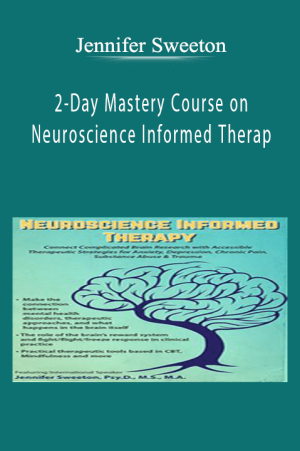

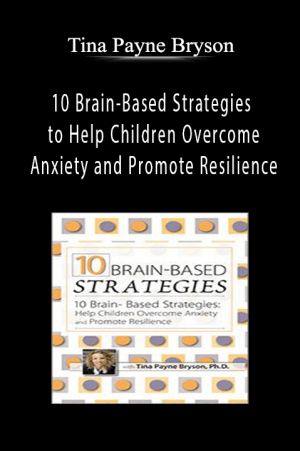

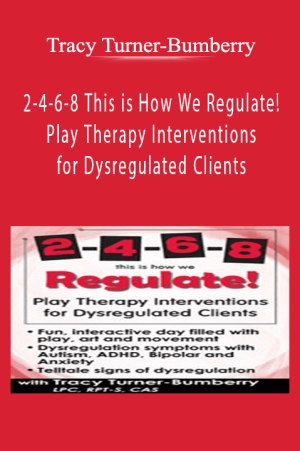

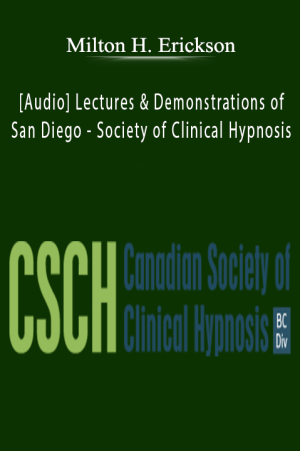
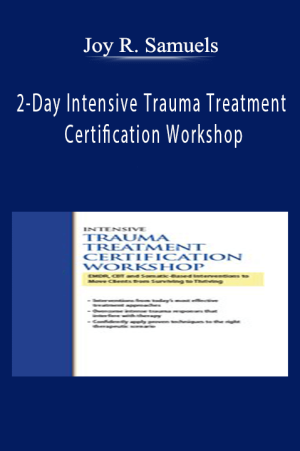


8 reviews for Jennifer Sweeton – Neuroscience for Clinicians: Powerful Brain–Centric Interventions to Help Your Clients Overcome Anxiety, Trauma, Substance Abuse and Depression
There are no reviews yet.